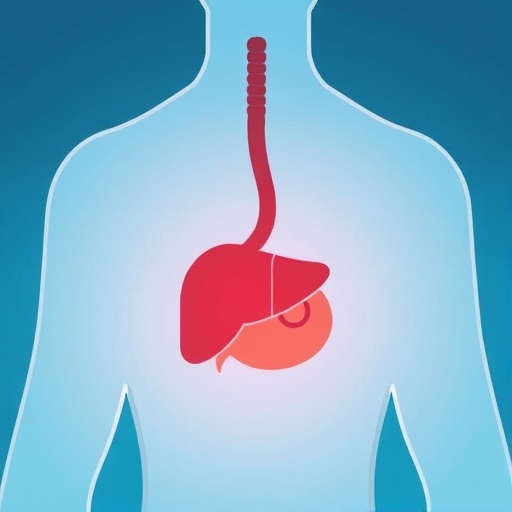Emerging research has unveiled a compelling link between chronic stress and the prognosis of patients battling hepatocellular carcinoma (HCC) post-curative therapy. In a groundbreaking study published in BMC Psychiatry, a team of researchers introduced a novel comprehensive classification system that not only quantifies chronic stress but also predicts its impact on disease outcomes. By measuring biological and psychological stress markers, they established an innovative index that stratifies patients based on their chronic stress status, revealing profound implications for survival rates.
The researchers embarked on this study with a clear objective: to scrutinize how varying intensities of chronic stress influence disease-free survival (DFS) and overall survival (OS) among HCC patients who have received curative treatment. The goal extended beyond this to construct a robust, evidence-based chronic stress evaluation tool that could be deployed clinically to enhance patient management.
Involving ninety HCC patients, the study adopted multidimensional stress assessment tools, utilizing hair cortisol concentration—a biological marker reflecting cumulative stress exposure over weeks or months—alongside a novel Stress Score and the Perceived Stress Scale (PSS-10), a widely recognized psychological stress measurement. This tripartite approach ensured a comprehensive evaluation capturing both physiological and subjective experiences of chronic stress.
Crucially, the researchers applied rigorous statistical methods to determine optimal cut-off thresholds for each stress marker. These cut-offs demarcated stress levels that correlated significantly with clinical outcomes. The Stress Score cut-off was set at 15.30, PSS-10 at 50.00, and hair cortisol concentration at 19.70 pg/mg. These distinct limits empowered the construction of the Chronic Stress Index (CSI), designed to integrate diverse stress metrics into a singular, interpretable classification.
The CSI assigned patients into two primary categories: low chronic stress state (LCSS) for those scoring between 3 and 4, and high chronic stress state (HCSS) for scores ranging from 5 to 6. This binary classification enabled a clear demarcation of stress burden, providing a straightforward tool for clinicians to categorize patients’ stress profiles within the context of HCC prognosis.
Analysis of clinical outcomes underscored the stark contrast between these two groups. Patients in the HCSS category exhibited markedly poorer disease-free survival, with a statistically significant p-value less than 0.001. This finding suggests that elevated chronic stress potentially accelerates cancer recurrence or progression even after ostensibly curative interventions.
Moreover, overall survival was also significantly diminished in the high chronic stress group, with a p-value of 0.033, signifying that chronic stress not only affects recurrence rates but also impacts the ultimate longevity of HCC patients. This association spotlights chronic stress as a critical modifier of cancer prognosis, warranting increased attention in oncological care.
To complement their cohort study, the investigators conducted a systematic review exploring existing literature on the nexus between chronic stress and cancer recurrence. Surprisingly, they identified only three clinical trials addressing this topic, highlighting a substantial gap in oncological research and underscoring the novelty and importance of their work.
The study’s findings carry considerable clinical implications. By demonstrating that chronic stress is an independent prognostic factor in HCC, the research advocates for the integration of stress assessment into routine post-treatment surveillance. This holistic approach could enable personalized interventions aimed at stress reduction, potentially improving patient outcomes.
From a mechanistic perspective, the biological plausibility of stress influencing cancer progression is supported by evidence linking cortisol and other stress hormones to tumor biology, immune modulation, and inflammation. The hair cortisol measurement in this study provides a pioneering biomarker capturing long-term hormonal stress exposure, enriching the clinical toolkit.
The authors emphasize that the CSI provides a novel, validated classification method that incorporates both psychological perceptions and objective biochemical data. This dual focus enhances the robustness of stress evaluation, transcending limitations inherent in single-modality assessments that have traditionally hindered progress in this field.
Future research directions include validating the CSI in larger, multi-center trials and exploring the efficacy of targeted interventions such as mindfulness, pharmacological agents, or psychosocial support in altering chronic stress levels and consequent HCC outcomes. The study lays a foundation for integrating psycho-oncology into standard cancer care pathways.
In sum, this pioneering research elucidates the critical role of chronic stress in shaping the clinical trajectory of hepatocellular carcinoma patients after curative treatment. By establishing a comprehensive, scientifically grounded classification system, it bridges a crucial knowledge gap and paves the way for enhanced prognostic stratification and therapeutic strategies designed to improve survival and quality of life.
Subject of Research:
Impact of chronic stress on hepatocellular carcinoma prognosis post-curative treatment and establishment of a comprehensive chronic stress classification index.
Article Title:
Chronic stress impacts the prognosis of hepatocellular carcinoma patients after curative treatment by establishing a novel comprehensive classification: a cohort study and systematic review.
Article References:
Wang, X., Deng, Y., Zheng, P. et al. Chronic stress impacts the prognosis of hepatocellular carcinoma patients after curative treatment by establishing a novel comprehensive classification: a cohort study and systematic review. BMC Psychiatry 25, 937 (2025). https://doi.org/10.1186/s12888-025-07288-z
Image Credits: AI Generated
DOI:
https://doi.org/10.1186/s12888-025-07288-z
Keywords:
Chronic stress, hepatocellular carcinoma, disease-free survival, overall survival, hair cortisol concentration, Perceived Stress Scale, Stress Score, Chronic Stress Index, cancer prognosis, psycho-oncology




